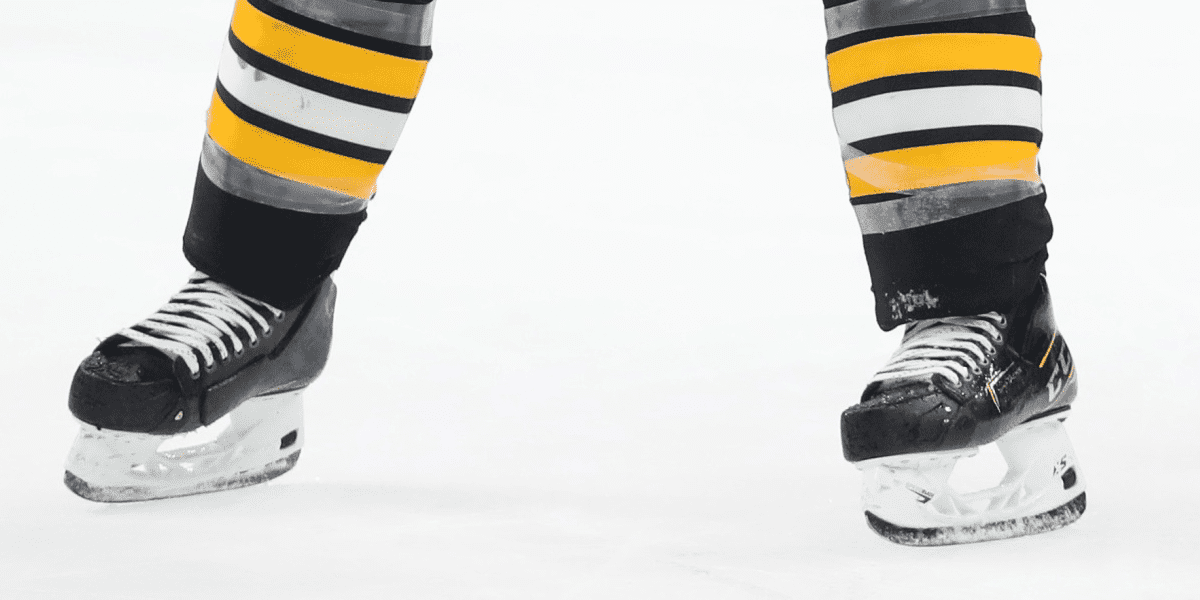CEO Scott Smith out at Hockey Canada, board of directors resigns
Published October 11, 2022 at 2:10 pm

Scott Smith spent nearly three decades climbing the ladder at Hockey Canada.
He lasted just over three months at the top following a series of scandals that have rocked the sport’s national federation to its core.
Smith is out as Hockey Canada’s president and CEO, the embattled organization announced Tuesday.
The board of directors has also resigned.
Smith was unable to survive the fallout related to Hockey Canada’s mishandling of sexual assault allegations and how settlements were paid out that both enraged the country and opened yet another conversation about the sport’s toxic culture.
Hockey Canada said in a statement an interim management committee will be put in place to guide the organization until a new board, which is set to be elected in December, appoints Smith’s successor.
Hockey Canada said the outgoing board recognized “the urgent need for new leadership and new perspectives” in stepping down.
Smith and those board members follow former chair Michael Brind’Amour, who resigned in August, and interim chair Andrea Skinner, who stepped down Saturday, as casualties at a federation that has seen politicians, including Prime Minister Justin Trudeau, call for leadership change and corporate sponsors jump ship.
Smith took over from outgoing CEO Tom Renney on July 1 after a succession plan was announced in April, but Hockey Canada’s world started to come crashing down shortly thereafter.
TSN was first to report in May that an undisclosed settlement had been paid to a woman who alleged in a $3.55-million lawsuit she was sexually assaulted by eight players — including members of the country’s world junior team — after a 2018 Hockey Canada gala in London, Ont.
The ugly headlines continued with the revelation of a secretive Hockey Canada fund partly maintained by minor hockey registration fees to pay for uninsured liabilities, including sexual assault and abuse claims.
A Hockey Canada official testified on Parliament Hill in July the organization had doled out $7.6 million in nine settlements related to sexual assault and abuse claims since 1989, not including this year’s payout to the London plaintiff. The majority went to the victims of disgraced former junior hockey coach Graham James.
Police in London later said they would reopen the investigation into the 2018 incident. The NHL is also conducting an investigation because many of the players from that junior team are now in the league.
Hockey Canada then announced members of the 2003 men’s world junior team are being investigated for a group sexual assault, as calls for change at the top mounted. None of the allegations have been proven in court.
Smith, who previously served as both president and COO, and the soon-to-be-retired Renney were grilled during what would be the first Standing Committee on Canadian Heritage meeting looking into Hockey Canada in June about both the London incident and from where settlement funds were drawn.
Parliamentarians were left stunned by the lack of transparency and accountability during that disastrous session. Hockey Canada subsequently had federal funding cut off, while a number of corporations paused sponsorship dollars.
Its reputation and brand battered and bruised, the organization eventually issued a carefully worded open letter July 14 that contained a number of promises, including a pledge to reopen an incomplete third-party investigation into the 2018 alleged assault and a full governance review.
Hockey Canada subsequently released an “action plan” that included a road map to deliver on those promises, and added details on a tracking system for complaints at all levels of hockey, with yet to be specified data from the tracking being published as part of an annual report.
“We have not done enough to address the actions of some members of the 2018 national junior team or to end the culture of toxic behaviour within our game,” Hockey Canada wrote.
“For that we unreservedly apologize.”
Smith, who joined the organization in 1995, testified a second time in front of parliamentarians in another round of committee meetings in July where he resisted calls for his resignation from politicians of all party stripes.
Those calls increased further last week when the organization further dug in its heels during a third round of hearings on Parliament Hill, with both its former and current board chairs defending Smith’s leadership.
Brind’Amour said he had the qualities to “do something positive for the organization.”
Skinner, meanwhile, told the committee that hockey should not be made a “scapegoat”‘ for toxic culture that exists elsewhere in society.
The response to those comments was swift, with Hockey Quebec stating it had lost confidence in Hockey Canada and would not transfer funds to the national organization. A number of provincial organizations announced similar decisions.
With its government funding already shut off, a number of corporate sponsors — including Tim Hortons, Canadian Tire and Nike — either paused or fully withdrew funding altogether from Hockey Canada.
Skinner resigned over the week before Smith and the rest of the board exited Tuesday.
Renney and Smith worked side-by-side following the former’s 2014 appointment to Hockey Canada president and CEO. Renney then handed the role of president to Smith, who was also the federation’s COO, five years ago.
“You gave me front row seats to all the activity of a CEO and you certainly prepared me for this day,” Smith, a native of Bathurst, N.B., told Renney at an April news conference.
“We can’t promise perfect, but we certainly can promise a constant drive to be better, and more importantly, make every Canadian feel welcome to a safe and inclusive environment.”
A former NHL head coach, Renney replaced Bob Nicholson as Hockey Canada’s president and CEO following a 16-year tenure.
“Because of your leadership, I know what we’re in for,” Renney said to Smith in April.
“You will understand and honour diversity, equity and inclusion.”
Joshua Clipperton, The Canadian Press
INsauga's Editorial Standards and Policies